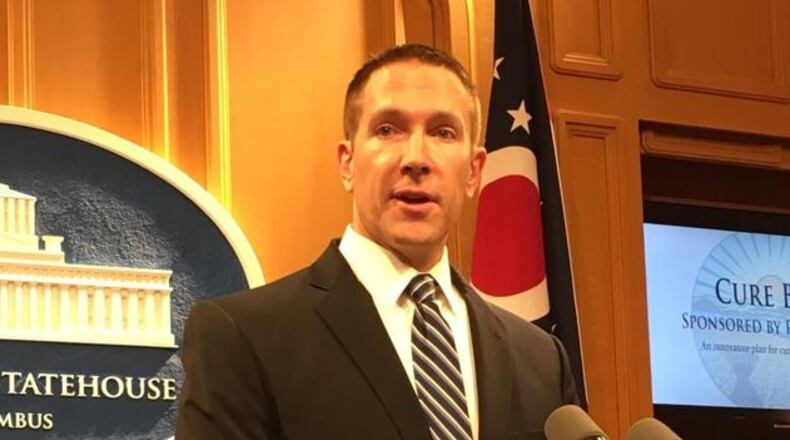Butler says it would save states money in the long run because taxpayers wouldn’t be shelling out cash to cover major diseases. The size of the prize would be linked to how much money the states would save by no longer having to cover treatments for the cured people. The prizes would be calculated based on how much money is saved over a five-year period.
He noted that Alzheimer’s disease costs about $249 billion a year in the U.S. If 10 states join the compact, the prize for curing Alzheimer’s and saving states money might be $12 billion to $25 billion. The multi-state compact would control any patents associated with the cure.
“Why not try it? What have we got to lose?” said Butler.
Butler is known as a man of unconventional ideas and big thinking. He proposed building two major airport hubs and he championed a proposal to mandate price disclosures for non-emergency medical treatments and procedures.
Related: Butler proposes building two major airport hubs
Related: Ohio hospitals want to overturn disclosure law
Butler said the current system for paying for scientific research hasn’t brought about cures of major diseases for decades. Butler argues that private funding pays for two-thirds of current scientific research while government institutions pay for the rest.
“Cures for diseases are rarely, if ever, researched because companies cannot possibly make more money on products people take once or for a short period of time and never have to take again versus products have to take for months or years,” he said in a written release.
About the Author

